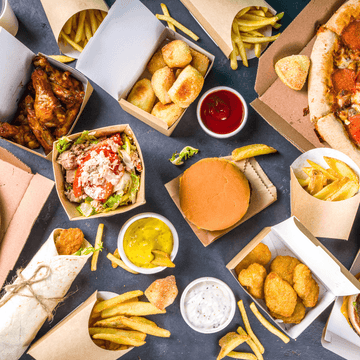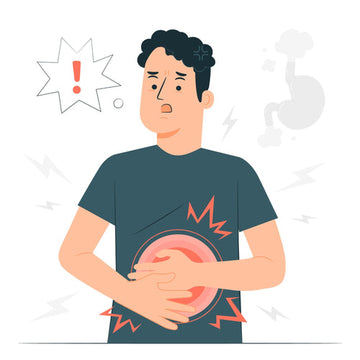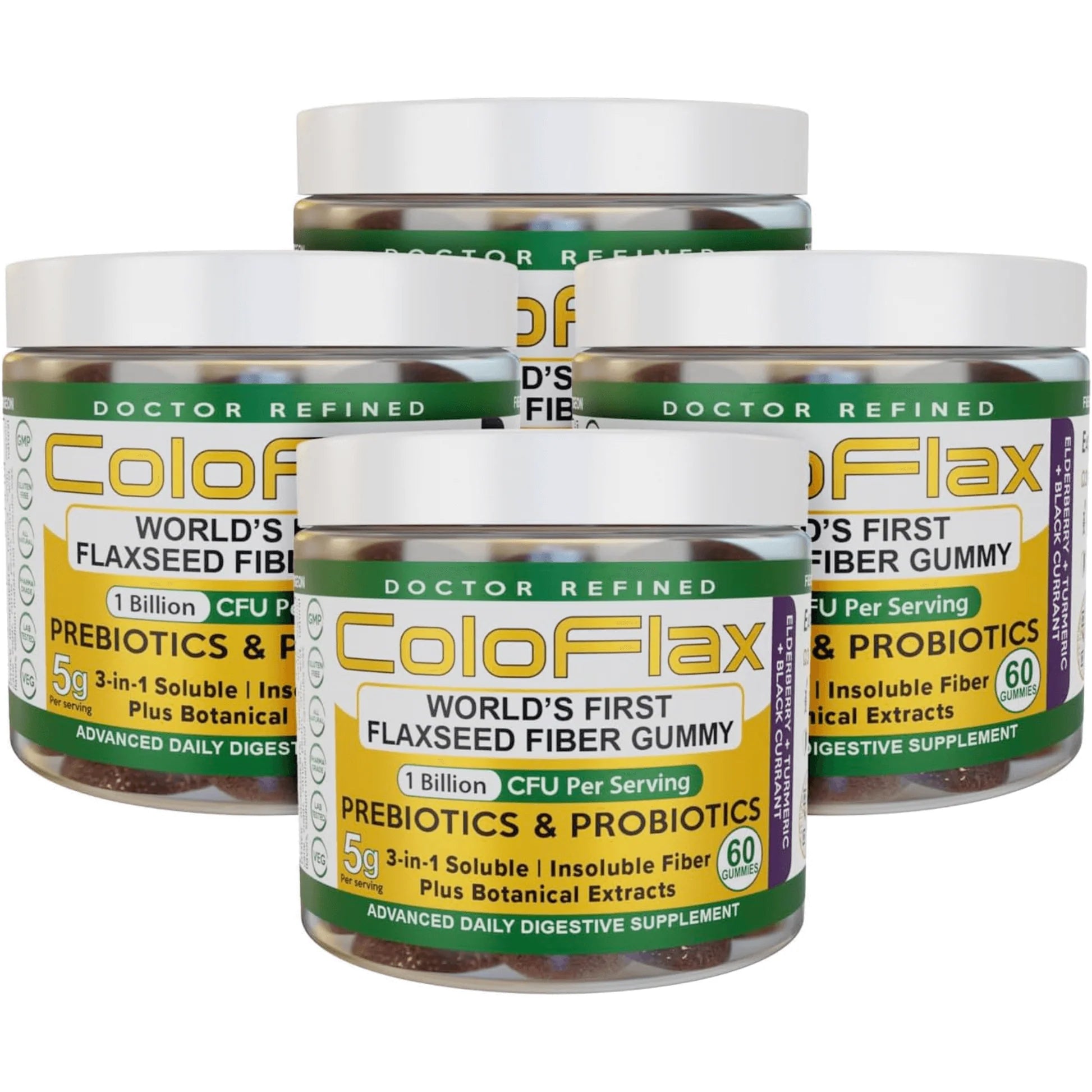“Fast food” is a pretty broad term, and these days it encompasses a wide range of cuisines. But it’s always designed with speed and simplicity in mind, it’s usually very cheap, and it’s often laden with saturated fat, refined sugar, sodium, and all the other delicious—and incredibly unhealthy—stuff your doctor warns you about.
We know that fast food is bad for us, but convenience and hunger often triumph over those health warnings. The question is, how bad is fast food? Are we talking about some minor digestive discomfort and a slightly elevated risk of cardiovascular problems, or are there some genuinely concerning risks you need to know about?
How Dangerous is Fast Food?
When you think of the negative consequences of eating fast food, your mind might jump to “hidden chemicals”. The fast food industry certainly likes its additives, and a few of these are concerning, but you won’t find them in all fast food dishes and they are not the most concerning ingredients.
Here are the main reasons fast food is so unhealthy:
High in Sodium

You need sodium. It has been estimated that the body requires about 500mg of sodium every day to perform vital functions. The Daily Value (DV) for sodium is 2,300mg per day, and this is the upper limit. (1)(2)
If you regularly exceed that 2,300mg, you could be placing your health at risk.
A Big Mac Meal contains about 1,225mg, 2.5x more than your body needs and more than half of your DV. That doesn’t sound too bad, but it’s just one meal, and sodium is in many of the foods we eat every day.
If you have a tablespoon of ketchup with your Big Mac Meal, two bags of chips as a snack, and a tin of soup later in the day, you will far exceed the recommended limit. And that doesn’t include the additional drinks, snacks, and condiments you might consume.
Sodium is a great flavor enhancer and is used liberally in fast food. It coats the French fries and salads, preserves the meat, and is even added to the bread and burger buns.
It is widely known that excessive sodium intake can have serious negative consequences for your health. It could cause high blood pressure and increased cancer risk. It greatly increases the risk of heart disease and early mortality. (3)(4)(5)
On a lesser note, excess sodium will make you thirsty. That’s not a problem if you’re quenching your thirst with water. But it becomes an issue if you’re relying on high-sugar soft drinks from the same restaurants that sell you the burgers and fries.
Speaking of which…
High in Sugar

Many fast food soft drinks contain over 30 grams of sugar. Some take things even further, with over 100g of the sweet stuff. Such is the case with the 30-oz Mountain Dew Baja Blast, which has 110 grams.
For perspective, the American Heart Association recommends no more than 36g of sugar for men and 25g for women.(6)
Fast food soft drinks don’t just exceed those limits, they annihilate them. If you have two of these drinks a day and top them up with a couple of coffees, you could consume over 200g. And that’s before you consider the sugar added to food. For instance, the Big Mac contains 9g!
A high-sugar diet makes you more likely to be diagnosed with heart disease, diabetes, and cancer. It has also been linked to a host of other conditions, including depression, addictive behaviors, stress, and acne. (7)(8)(9)(10)(11)
High in Saturated Fat

If you scroll down, you’ll see a table containing the “worst fast food” items. These meals are super high in calories, but they also contain a ridiculous amount of fat.
Fat itself isn’t the issue, as there are many healthy fats and they perform a variety of essential roles in the body. But unlike Greek salads and avocados, fast food is not high in “healthy” fats. It contains worrying amounts of saturated fat, which has been linked to high rates of heart disease.
A study published in 2016 looked at the diets of thousands of participants and concluded that “Higher dietary intakes of major [saturated fatty acids] are associated with an increased risk of coronary heart disease”. (12)
Low in Fiber

We have previously discussed the benefits of a high-fiber diet and have noted that the average American consumes much less than they need. In fact, it is thought that only 5% of us eat enough fiber, and that’s largely due to our reliance on processed food.
If you’re getting most of your calories from fast food, there’s a good chance you’re not eating enough fiber.
As a result, you’ll be more likely to experience digestive issues, including constipation, diarrhea, bloating, and gas. It may also impact your energy levels and could increase your risk of everything from diabetes and heart disease to a variety of digestive disorders.
Other Problems with Fast Food

Fast food consumption has been linked with higher rates of obesity. This is partly down to the sodium, sugar, and fat content, but it’s mainly because all that fat and sugar makes for some energy-dense meals.
If you have a McDonald’s Bacon, Egg & Cheese Biscuit for breakfast, a large Big Mac Meal for lunch, and a regular-size McFlurry, you will exceed the recommended calorie intake for women and get close to the DV for men. And that’s before you consider the drinks and snacks you consume throughout the day.
Of course, you’re probably not going to eat fast food for every meal, but it gives you an idea of just how calorie rich these foods are. And because you’re eating a relatively small quantity of food, it doesn’t always fill you up, so you’ll likely be hungry for more.
It’s also an expensive way to eat, which is a concern in times of high inflation. We often see fast food as a cheaper option than home cooking. But the truth is, if you use ingredients of equal quality, it’s always cheaper to cook at home.
Sure, the Big Mac looks like a cheaper option when you check the price of juicy organic patties from the grocery store. But let’s be honest, McDonald’s isn’t using the finest meat, so you should be comparing that Big Mac to cheap frozen patties or even mince that you can make into your own patties.
Add some burger relish, processed cheese slices, and a pack of burger buns and you’ll realize that you can make a dozen burgers for the same price as a single Big Mac.
Fast Food Frequency: The Dose is the Poison
If a single quote could define the values of modern society and the individual goals of its people, what would it be?
“Be kind”? “Love one another”?
For the ancient Greeks, the founders of democracy, one of the most recited and repeated quotes was “παν μέτρον άριστον” which roughly translates as “everything in moderation”.
It’s not entirely unrelated to another famous quote from the Hellenistic period: “The dose is the poison”. In other words, everything can be safe (or “not deadly”) if the dose is low enough and everything can kill you if the dose is high enough.
The Greeks acknowledged that abstinence wasn’t the key, and that it’s okay to drink, eat unhealthy food, and do unhealthy things, providing they are done in moderation. A little of what you like won’t kill you.
The same is true for fast food.
There’s arguably nothing wrong with enjoying a burger every few weeks. If you’ve been working and/or shopping all day, you haven’t eaten anything, and you’re desperate for a quick meal, it’s okay to drop by your favorite chain and grab something to eat.
Sure, it would be better to pick up a salad or stop for a substantial meal, but that burger and those fries won’t kill you.
But if you’re doing that every day or even a few times a week, and you’re eating similarly low-quality food at home, your health will suffer.
How Much Fast Food Does the Average American Eat?
According to the CDC, a third of all Americans are eating fast food on any given day. (13)
Many Americans fast food at least once or twice a week. This is not a worrying amount, but obviously, it would be better to limit consumption to just once a month or to abstain altogether.
You can also stick with healthier fast food options, such as salads and smoothies. Choose chicken instead of beef. Stick with one burger patty instead of two or three. Swap fried foods for grilled foods.
Fast food salads are often criticized. The media loves to publish articles about how they are “just as bad” as burgers and other cheesy, meaty, and fatty foodstuffs. But that’s only true if you focus purely on the calories and the fat.
In truth, while a fast food salad can contain a lot of calories and fat, it’s usually much lower in saturated fat, higher in fiber, and also contains many nutrients not found in burgers, pizzas, and other fare. Is it better than a homemade salad with a light dressing? No, not at all. Is it a better option than a giant pizza or a triple-stacked burger? Most definitely.
What are the Unhealthiest Fast Food Items?
The quality of the fast food is key to determining whether it’s actually bad for you. Most fast food is loaded with sodium, refined sugars, and saturated fat, but a small burger is obviously going to be a healthier choice than a chicken, cheese, and beef-stuffed monstrosity that clocks in at over 1,000 calories.
In a previous article, we highlighted some of the best fast food options to order in a pinch. Now let’s look at some of the worst:
|
Name |
Calories |
Fat |
|
Wendy’s Pretzel Bacon Triple Cheeseburger |
1,520 |
106g |
|
Chick-fil-A Cobb Salad with Avocado Lime Ranch Dressing |
850 |
61g |
|
Popeye’s 16pc Tenders – Classic Family Meal |
2,448 |
104g |
|
Burger King Triple Whopper with Cheese |
1,220 |
82g |
|
Sonic Oreo Peanut Butter Shake |
1,720 |
104g |
|
Taco Bell Nachos BellGrande, Beef |
740 |
38g |
|
Pizza Hut Meat Lover’s Pizza |
3,120 |
168g |
|
Arby’s Half-Pound Beef n Cheddar |
740 |
39g |
|
Dairy Queen Royal Rocky Road Trip Blizzard Treat |
1,510 |
70g |
|
Five Guys Fries |
1,314 |
57g |
|
KFC Chicken Pot Pie |
720 |
41g |
|
Hardee’s Monster Double Thickburger |
1,400 |
97g |
|
Bojangles Chicken Rice Bowl with Biscuit |
1,090 |
42g |
|
A&W Polar Swirl, M&M |
1,190 |
43g |
|
In-N-Out 4x4 |
1,050 |
70g |
|
Jack in the Box Oreo Cookie with Whipped Topping Shake |
1,145 |
61g |
|
White Castle Mozzarella Sticks |
1,490 |
111g |
|
El Pollo Loco California Queso Burrito |
930 |
42g |
|
Wienerschnitzel Thousand Island Chili Cheese Fries |
1,510 |
95g |
Summary: How Dangerous is Fast Food?
Remember, “everything in moderation”. Fast food is not a poison that will infiltrate your body, remain forever, and hack away at your life expectancy. But if you eat it on a regular basis, it will increase your risk of a number of health complications.
Eat less fast food if you want to stay healthy and if you have no choice, stick with high-fiber, low-fat options.
References
- https://www.hsph.harvard.edu/nutritionsource/salt-and-sodium
- https://www.fda.gov/food/nutrition-education-resources-materials/sodium-your-diet
- https://pubmed.ncbi.nlm.nih.gov/31781959/
- https://pubmed.ncbi.nlm.nih.gov/31781959/
- https://pubmed.ncbi.nlm.nih.gov/29084085/
- https://www.heart.org/en/healthy-living/healthy-eating/eat-smart/sugar/how-much-sugar-is-too-much
- https://pubmed.ncbi.nlm.nih.gov/33855443/
- https://www.ncbi.nlm.nih.gov/pmc/articles/PMC5741209/
- https://www.ncbi.nlm.nih.gov/pmc/articles/PMC8234141/
- https://www.sciencedirect.com/science/article/pii/S0149763418308613
- https://www.ncbi.nlm.nih.gov/pmc/articles/PMC7847434/
- https://www.bmj.com/content/355/bmj.i5796
- https://www.cdc.gov/nchs/products/databriefs/db322.htm






